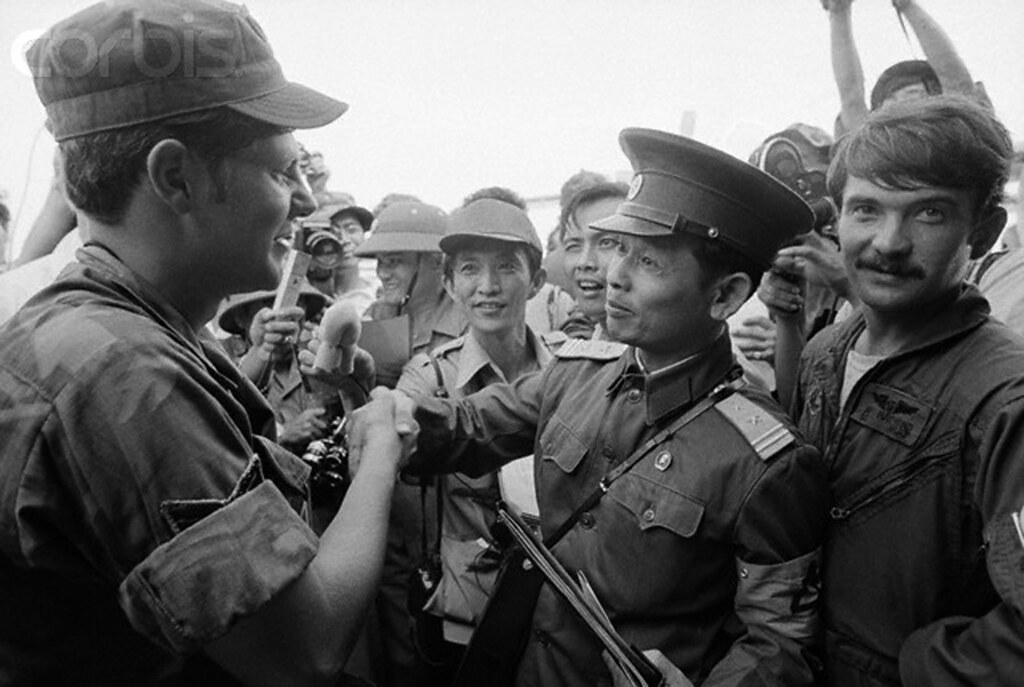
*Colonel Bui Tin (b. 1927) was a former colonel in the North Vietnamese Army (NVA) during the Vietnam War. After the war, he served as the vice-editor for the People's Daily, the official newspaper of the Socialist Republic of Vietnam. He became disillusioned with Vietnamese communism and since 1990 has lived in Paris, France. Tin has also been actively involved in Vietnam War POW/MIA issuesAccording to *Colonel Bui Tin, the US would have likely won the war had it implemented El Paso.
*********************************
From the American perspective, General
William Westmoreland was once heard to say: "I'd like to go to Tchepone
but I haven't got the tickets." The December 2004 edition of Military Officer magazine summoned all former Blind Bats to Biloxi, Mississippi from April 28-30, 2005, for a "Batfest" reunion. "Blind Bats"? Who? Well, that's what we wanted to know.
The journey to learn about the Blind Bats is a journey back through history to the beginnings of the Vietnam War, to a time when secretive, covert US military operations were going on with a greater assortment of odd-ball aircraft and daring crews than you can shake a stick at.
More @ Talking Proud



*******************
Like the C-130 Blind Bat, the B-57's
initial operation in Vietnam was cloaked in secrecy. The US supplied a
few B-57Bs to the South Vietnamese Air Force (VNAF), a violation of the
Geneva Accords that prohibited introduction of jet aircraft into the
region. We'll show you three photos
B-57B Night Intruder in VNAF colors. These bombers were under the
operational control of the USAF's 8th and 13th Bomber Squadrons, but
were piloted by all-VNAF crews. This picture was taken at Da Nang in
October 1965. After several accidents the B-57B was withdrawn from VNAF
service. Photo credit: R. Mikesh, presented by VNAF.net
B-57B s/n 52-1532 in three-tone SEA camouflage scheme. Quite a few
B-57Bs were assigned to the VNAF, but never more than four at any one
time. Photo credit P. Q. Khiem, presented by VNAF.net
Closer view of the VNAF markings.
The
US trained South Vietnamese aircrews secretly at Clark AB in the
Philippines in 1964, and then moved to Tan Son Nhut AB in Saigon, South
Vietnam. The US formally announced that the aircraft had been given to
the South Vietnamese in 1965. The VNAF flew the aircraft or sat in the
second seat, but with an American in the other seat. The VNAF did get
aircraft with their own markings which they alone could fly, but they
were under USAF operational control.

Hi, Brock. Just in case you may find this of interest should you go back in
ReplyDeleteNovember:
https://www.boredpanda.com/creative-design-giant-hands-bridge-ba-na-hills-vietnam/?utm_source=rense&utm_medium=social&utm_campaign=organic
I thought I had replied to this. Sorry and thanks.
DeleteHope they do better job on this one. :) https://en.wikipedia.org/wiki/Collapse_of_C%E1%BA%A7n_Th%C6%A1_Bridge